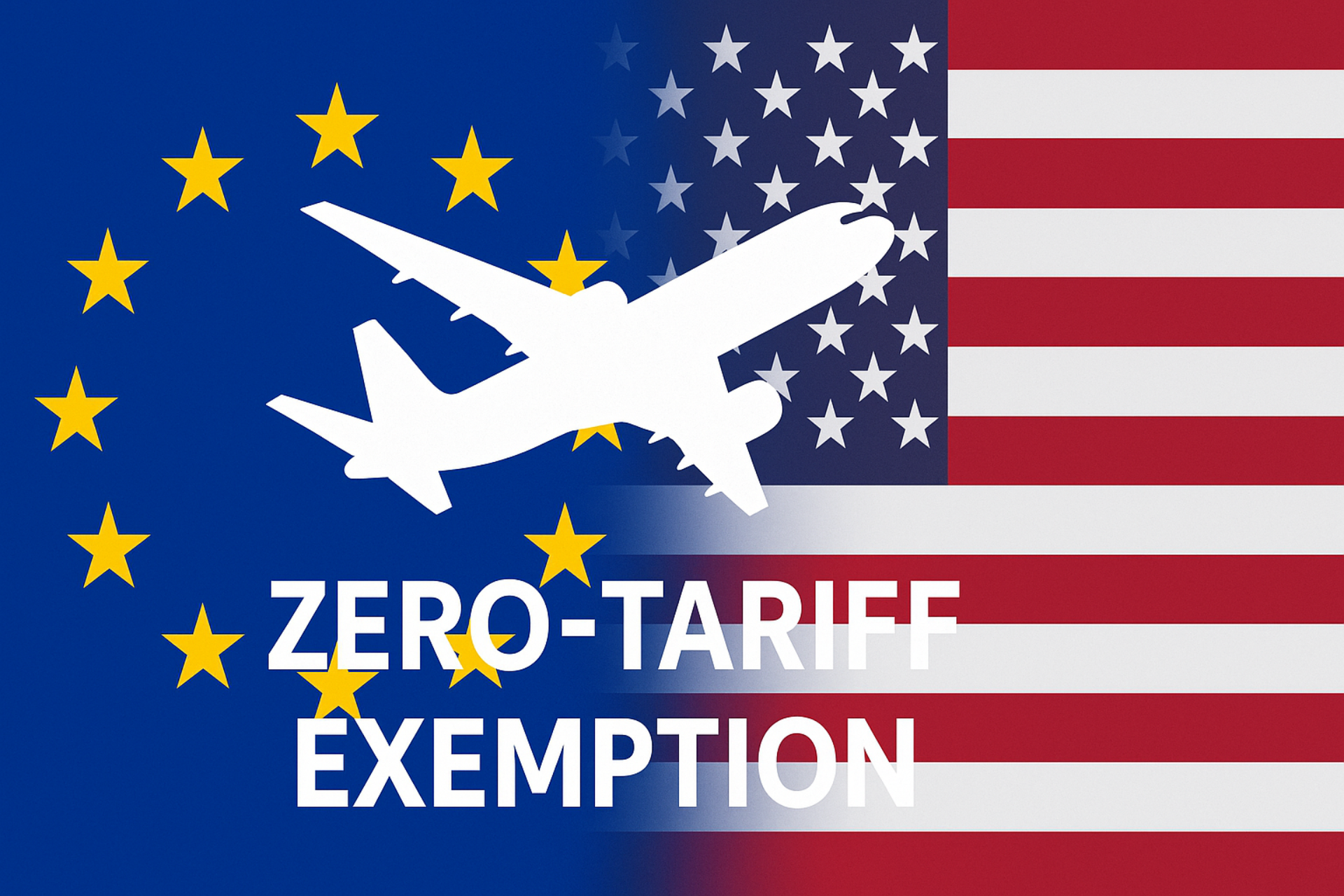EBAA welcomes transatlantic "zero-for-zero" provision, urges for swift implentation
The EU–U.S. trade agreement imposes a 15% tariff on most goods — but aviation doesn't fall under that. Aircraft, aircraft engines, and parts remain zero-tariff, ensuring transatlantic supply chains. This outcome follows intense lobbying by industry leaders on both sides of the Atlantic. One major win for business aviation — it ensures stability, access, and growth.
The European Business Aviation Association (EBAA) has welcomed the news that aircraft, engines and parts will remain dutyfree under a newly announced transatlantic trade arrangement. The EU and the United States reached a provisional agreement this week to avoid a damaging escalation in tariffs and to restore the dutyfree regime for aerospace products originally established under the 1979 Agreement on Trade in Civil Aircraft. The outcome comes after months of coordinated lobbying by planemakers, airlines and industry associations on both sides of the Atlantic.
For the business aviation community, the exemption is more than symbolic. It removes an immediate threat to production schedules and delivery pipelines that crisscross the Atlantic. Business aviation aircraft manufacturers, maintenance companies and suppliers depend on cross border shipments of expensive parts. Large scheduled airlines had already considered diverting aircraft from third-party nations to avoid potential tariffs. By keeping aircraft and parts dutyfree, the deal ensures continuity in this highly integrated supply chain and gives operators certainty to plan fleet upgrades and maintenance. Business aviation trade groups, including NBAA and GAMA, welcomed the agreement as restoring a level playing field and reinforcing the sector’s global competitiveness.
The exemption is a win for business aviation as it ensures the integrity of the supply chain, encourages investment and enables the business aviation community to focus on decarbonisation and innovation rather than crisis management. At the same time, EBAA urges policymakers to accelerate the agreement, provide clarity on how ancillary aerospace components are to be treated, and avoid making sectoral exemptions subject to unrelated policy conditions. The industry must remain vigilant, continuing to press for a stable and predictable trade environment that is committed to open skies and an open and competitive European aerospace sector.


